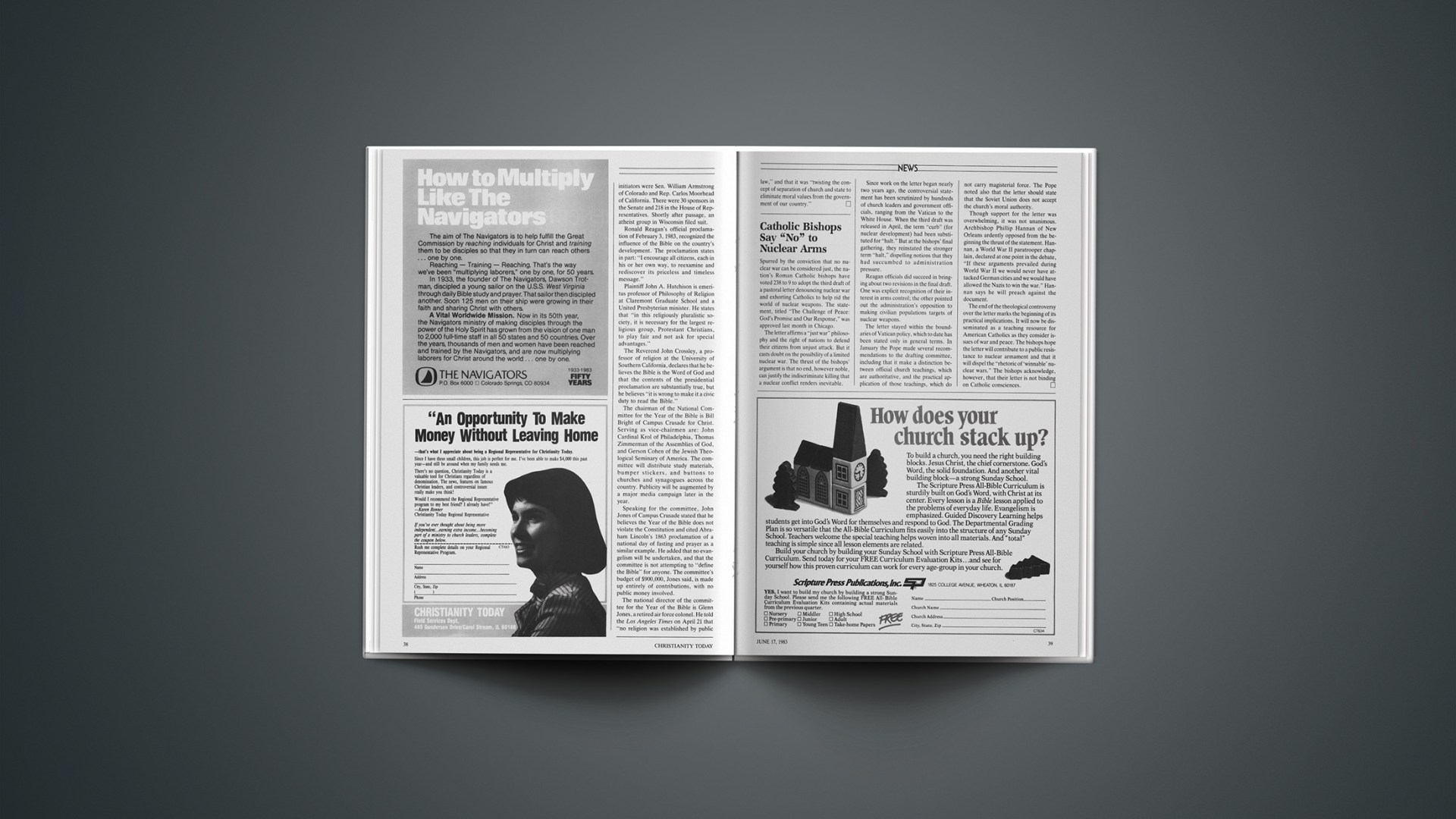Spurred by the conviction that no nuclear war can be considered just, the nation’s Roman Catholic bishops have voted 238 to 9 to adopt the third draft of a pastoral letter denouncing nuclear war and exhorting Catholics to help rid the world of nuclear weapons. The statement, titled “The Challenge of Peace: God’s Promise and Our Response,” was approved last month in Chicago.
The letter affirms a “just war” philosophy and the right of nations to defend their citizens from unjust attack. But it casts doubt on the possibility of a limited nuclear war. The thrust of the bishops’ argument is that no end, however noble, can justify the indiscriminate killing that a nuclear conflict renders inevitable.
Since work on the letter began nearly two years ago, the controversial statement has been scrutinized by hundreds of church leaders and government officials, ranging from the Vatican to the White House. When the third draft was released in April, the term “curb” (for nuclear development) had been substituted for “halt.” But at the bishops’ final gathering, they reinstated the stronger term “halt,” dispelling notions that they had succumbed to administration pressure.
Reagan officials did succeed in bringing about two revisions in the final draft. One was explicit recognition of their interest in arms control; the other pointed out the administration’s opposition to making civilian populations targets of nuclear weapons.
The letter stayed within the boundaries of Vatican policy, which to date has been stated only in general terms. In January the Pope made several recommendations to the drafting committee, including that it make a distinction between official church teachings, which are authoritative, and the practical application of those teachings, which do not carry magisterial force. The Pope noted also that the letter should state that the Soviet Union does not accept the church’s moral authority.
Though support for the letter was overwhelming, it was not unanimous. Archbishop Phillip Hannan of New Orleans ardently opposed from the beginning the thrust of the statement. Hannan, a World War II paratrooper chaplain, declared at one point in the debate, “If these arguments prevailed during World War II we would never have attacked German cities and we would have allowed the Nazis to win the war.” Hannan says he will preach against the document.
The end of the theological controversy over the letter marks the beginning of its practical implications. It will now be disseminated as a teaching resource for American Catholics as they consider issues of war and peace. The bishops hope the letter will contribute to a public resistance to nuclear armament and that it will dispel the “rhetoric of ‘winnable’ nuclear wars.” The bishops acknowledge, however, that their letter is not binding on Catholic consciences.










